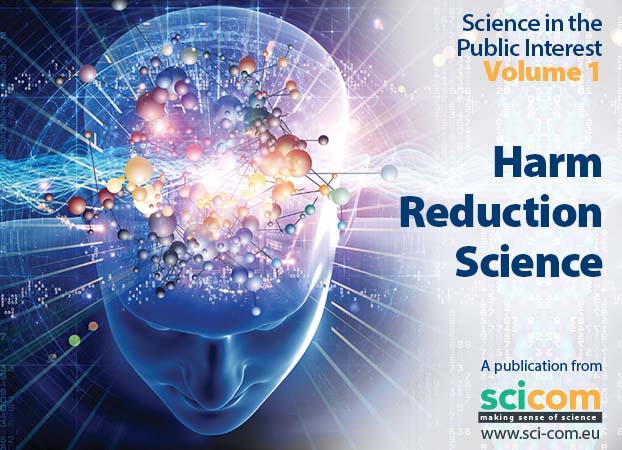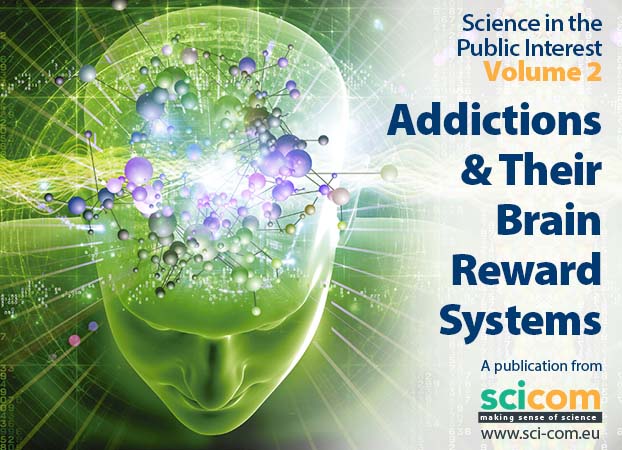Evidence-Based Policy Making: Ensuring the Rigour & Legitimacy of the Evidence
By Carthage Smith, Senior Policy Analyst, OECD
On 6 April 2009 a major earthquake hit the Italian city of L'Aquila causing the death of 309 people. This did not come without warnings from nature - a series of smaller magnitude tremors occurred in the weeks prior to the main earthquake, and it was even predicted by at least one 'rogue' scientist (although the scientific basis for this prediction was questionable). However, the formal scientific advice, from the government mandated Major Risk Committee that met a few days earlier, on 31 March, was that the occurrence of a large earthquake in the short term was unlikely. The reassuring message that was subsequently communicated to the media almost certainly contributed to loss of life. After the earthquake the four Risk Committee members and the three other scientific experts who attended the March 31 meeting were charged with manslaughter and causing multiple serious injuries. In October 2012 they were found guilty and sentenced to 6 years imprisonment. This sent shockwaves across the whole global science community, with many academic organisations raising their voices in protest - after all, any seismologist knows that earthquakes cannot be accurately predicted in the short-term. There was huge relief when six of the scientists were acquitted two years later but, in the meantime, a more careful assessment of what had gone wrong, raised serious questions about the roles and responsibilities of scientists in providing scientific advice.
Food for Thought: E-Cigarettes & the Need & Opportunities for Alternatives to Animal Testing
By Thomas Hartung, Johns Hopkins Bloomberg School of Public Health, Center for Alternatives to Animal Testing (CAAT), Baltimore, MD, USA, and CAAT-Europe, University of Konstanz, Germany
Summary
E-cigarettes have become within only one decade an important commodity changing the market of the most mass-killing commercial product. While a few years ago, estimates suggested that in the course of the 21st century one billion people would die prematurely from tobacco consumption, e-cigarettes continuously gaining popularity promise 10-30 fold lower health effects possibly strongly changing this equation. However, this still is not a harmless life-style drug. Acceptability simply depends whether we compare their use to smoking or not-smoking. In the absence of long-term follow-up health data of users, additional uncertainty comes from the lack of safety data, though this uncertainty likely only is whether they represent 3 or 10% of the risk of their combustible counterpart. This means that there is little doubt that they represent a prime opportunity for smokers to switch, but also that their use by non-smokers should be avoided where possible.
Scientific Integrity: What Does Industry Need To Do?
By Professor Julian Kinderlerer, CONSULTATION EVENT CO-CHAIR, former President of the European Group on Ethics in Science and New Technologies, European Commission, reporting to Presidents Barroso and Junker and the European Parliament; Prof. of Intellectual Law, Cape Town University; Adviser to the South African Science Ministry; Occasional Adviser to the UN Environment Programme; UN Industrial Development Organisation; World Intellectual Property Organisation; Former Director of Institutes on Biotech Law, Ethics & Society at Delft and Sheffield Universities.
By Dr Marina Murphy, Head of Scientific Media Relations, Research & Development, British American Tobacco
Scientific integrity is the cornerstone of all research, ensuring that the results are based on research that is repeatable, traceable and open for critique and comment by the scientific community. The worst examples of scientific misconduct are plagiarism, double publishing of results and falsifying of data. The choice of data that supports a particular interpretation poses a major threat to scientific integrity as well. There have been numerous examples over the last decade across both industry and academia of these practices. In most cases the peer review system has successfully rooted out the small (though often potentially extremely high impact cases) number of misconduct cases. Peer-review requires careful and honest assessment of the quality of the research and assurance that the data is not over-interpreted or that research that negates that suggested is not over-looked. This discussion has extended beyond the peer-reviewed literature to scientific conferences, the mass media, government advisory bodies, and more. While there is no doubt that there can be many possible sources of bias, the debate so far has focused almost exclusively on the concern about links between industry and science and how the demands of the former can undermine the public-interest mission of the latter.
Tobacco: Novel Products Challenging Old Ethical Stances
By Deborah Arnott (UK), GUEST CONTRIBUTOR, MBA FRCP (Hon), Chief Executive, Action on Smoking & Health (ASH UK) is a well-respected public health campaigner championing greater awareness about the tobacco epidemic worldwide, while pressing for evidence-based policy measures that do not attack smokers or condemn smoking. Reporting to the Royal College of Physicians, ASH provides the secretariat for the UK’s All Party Parliamentary Group on Smoking and Health.
The UK and USA are home to the leading tobacco transnationals and the birthplace of the twentieth century tobacco epidemic. Around mid-century, smoking peaked in the UK with around 80% of men and half of women smoking, slightly higher than the US40 at its height. This was an epidemic caused by manufactured cigarettes, consumption of which increased over 100 times during the century. Six million41 people a year now die globally from tobacco smoke, mostly smokers but including over half a million people killed by second-hand smoke. Unless action is taken the tally is expected to grow to eight million a year by 2030 and by then over 80% of these deaths will be in low and middle income countries. These countries are increasingly suffering from diseases caused by smoking such as cancer, diabetes, cardiovascular disorders and chronic respiratory illnesses. Tobacco caused 100 million deaths in the 20th century. If current trends continue, it may cause one billion deaths in the 21st century.
Alcohol: Why Evidence-Based Policies Are Often the Exception Rather Than the Rule
By Paul Skehan (IRL), PARTICIPANT, Director General of spiritsEUROPE. Based in Brussels, he represents the interests of the European spirits sector and 32 national trade associations of spirits producers, as well as a group of the EU’s largest spirits producing companies, all household names. He is a passionate advocate for greater transparency about how science feeds into EU policy-making.
The validity of the European Union in the eyes of its citizens is that it can provide effective and useful public policies. Good policies are always based on good evidence, on good science. However, much weak or biased research is now presented as fact to policy-makers, especially in the area of lifestyle sciences. Europe desperately needs an arbiter of good science and a re-think of how its in-house science service, the Joint Research Centre, might best provide this. Unlike the US Federal Drug Administration (FDA) or the National Institute for Care Excellence (NICE) in the UK, Europe currently has too patchy an approach to tackling issues around substance use. Amongst the EU research centres, institutes and agencies that have developed since the food crises of the 1980’s and 1990’s, there is too little expertise at-hand on substance addictions. With the abolition of the Office of Chief Scientific Advisor who will fill that role? Industry, academia and wider society should be concerned.
Criminalisation of Drugs: The Emerging Gaps Between Repressive & Health-Focused Countries
By Prof. Michel Kazatchkine, MD, (FR), Consultation Event Co-Chair & UN Secretary-General Ban-ki Moon’s Special Envoy on HIV/AIDS to Eastern Europe and Central Asia; Member of the Global Commission on Drug Policy and Former Executive Director, The Global Fund to fight AIDS, Tuberculosis & Malaria.
Most independent studies show problematic drug use increasing. As the world debates the ‘war on drugs’ and what to do next, in preparation for a special session of the UN General Assembly in 2016, it is pretty clear that the international drug enforcement regime has failed to reduce the use and harm caused by drugs. This prohibitionist approach has been a mainstay of global diplomatic relations for decades. It costs tens of billions of Euros / $ to run with many vested interests. More difficult to estimate are the health and social costs associated with addiction, mass incarcerations and the emergence of a vast criminal controlled trade. The gap between what science is telling us we should do and what is actually happening on the ground is harder for policy-makers to explain away, especially in Europe which has lost its way from a position of leadership. This imbalance between ‘policy-biased evidence’ above ‘evidence-based policy’ is the root cause of tens of thousands of avoidable deaths and millions of avoidable infections. There is no doubt that the policy-maker must share the blame.




